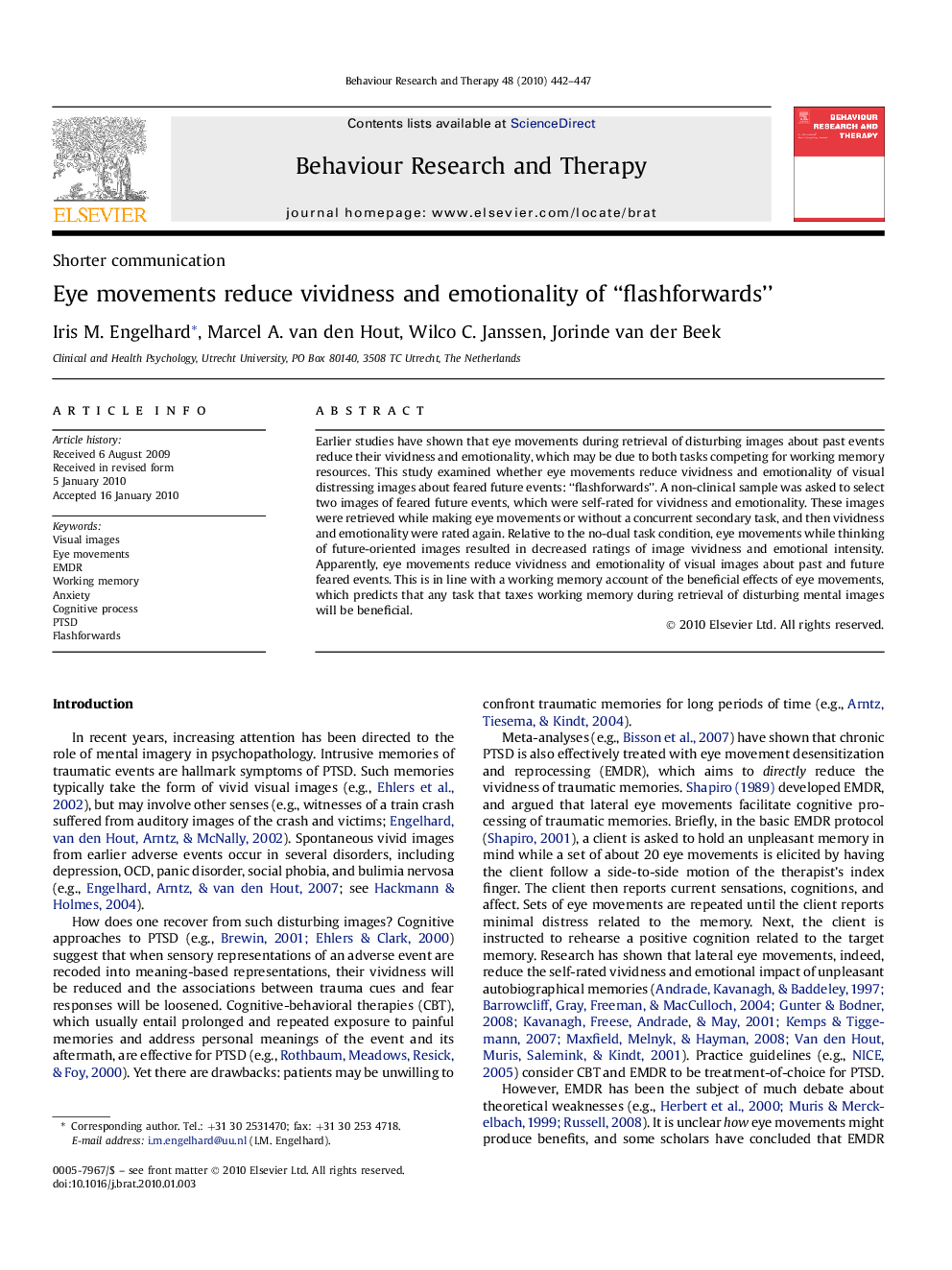| Article ID | Journal | Published Year | Pages | File Type |
|---|---|---|---|---|
| 10444679 | Behaviour Research and Therapy | 2010 | 6 Pages |
Abstract
Earlier studies have shown that eye movements during retrieval of disturbing images about past events reduce their vividness and emotionality, which may be due to both tasks competing for working memory resources. This study examined whether eye movements reduce vividness and emotionality of visual distressing images about feared future events: “flashforwards”. A non-clinical sample was asked to select two images of feared future events, which were self-rated for vividness and emotionality. These images were retrieved while making eye movements or without a concurrent secondary task, and then vividness and emotionality were rated again. Relative to the no-dual task condition, eye movements while thinking of future-oriented images resulted in decreased ratings of image vividness and emotional intensity. Apparently, eye movements reduce vividness and emotionality of visual images about past and future feared events. This is in line with a working memory account of the beneficial effects of eye movements, which predicts that any task that taxes working memory during retrieval of disturbing mental images will be beneficial.
Related Topics
Health Sciences
Medicine and Dentistry
Psychiatry and Mental Health
Authors
Iris M. Engelhard, Marcel A. van den Hout, Wilco C. Janssen, Jorinde van der Beek,
